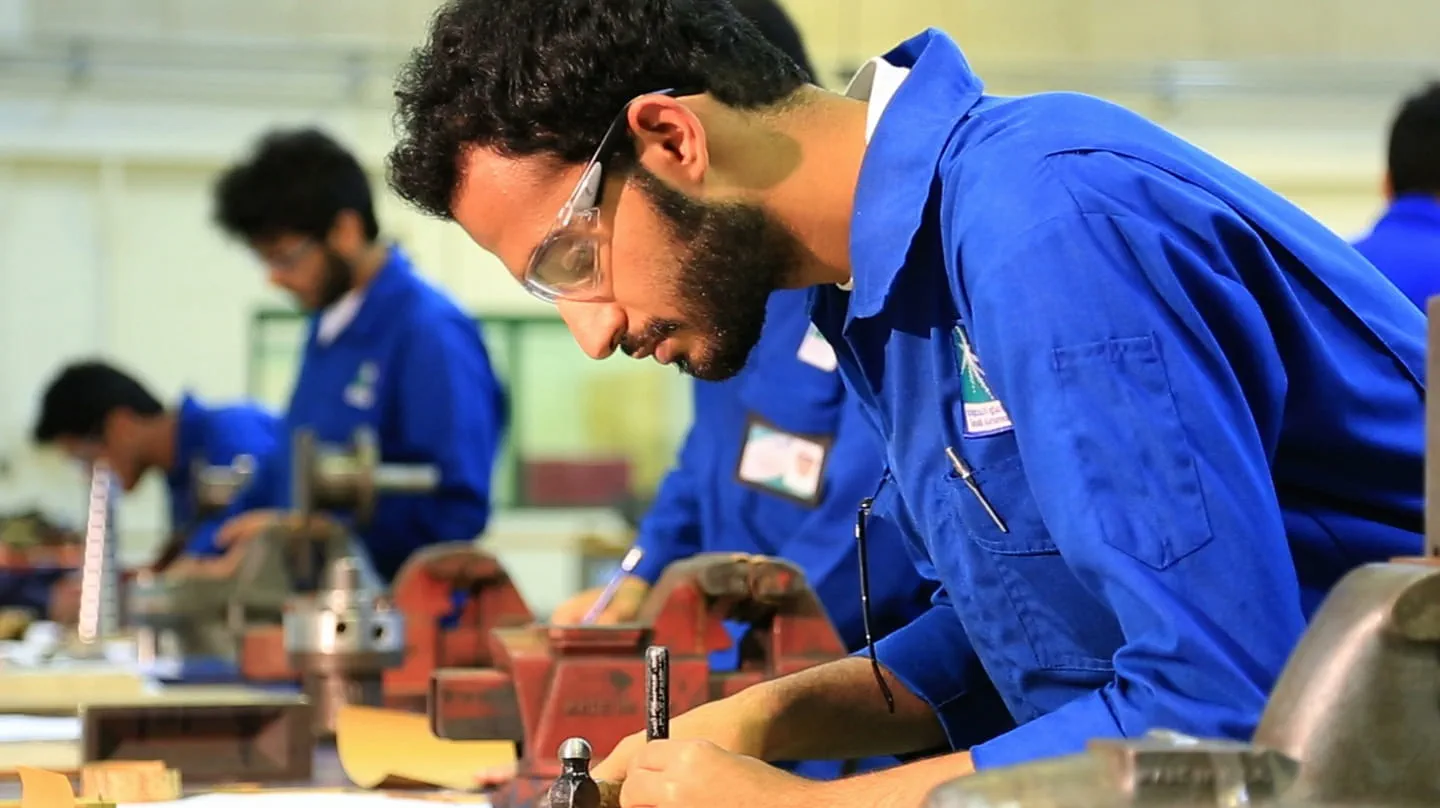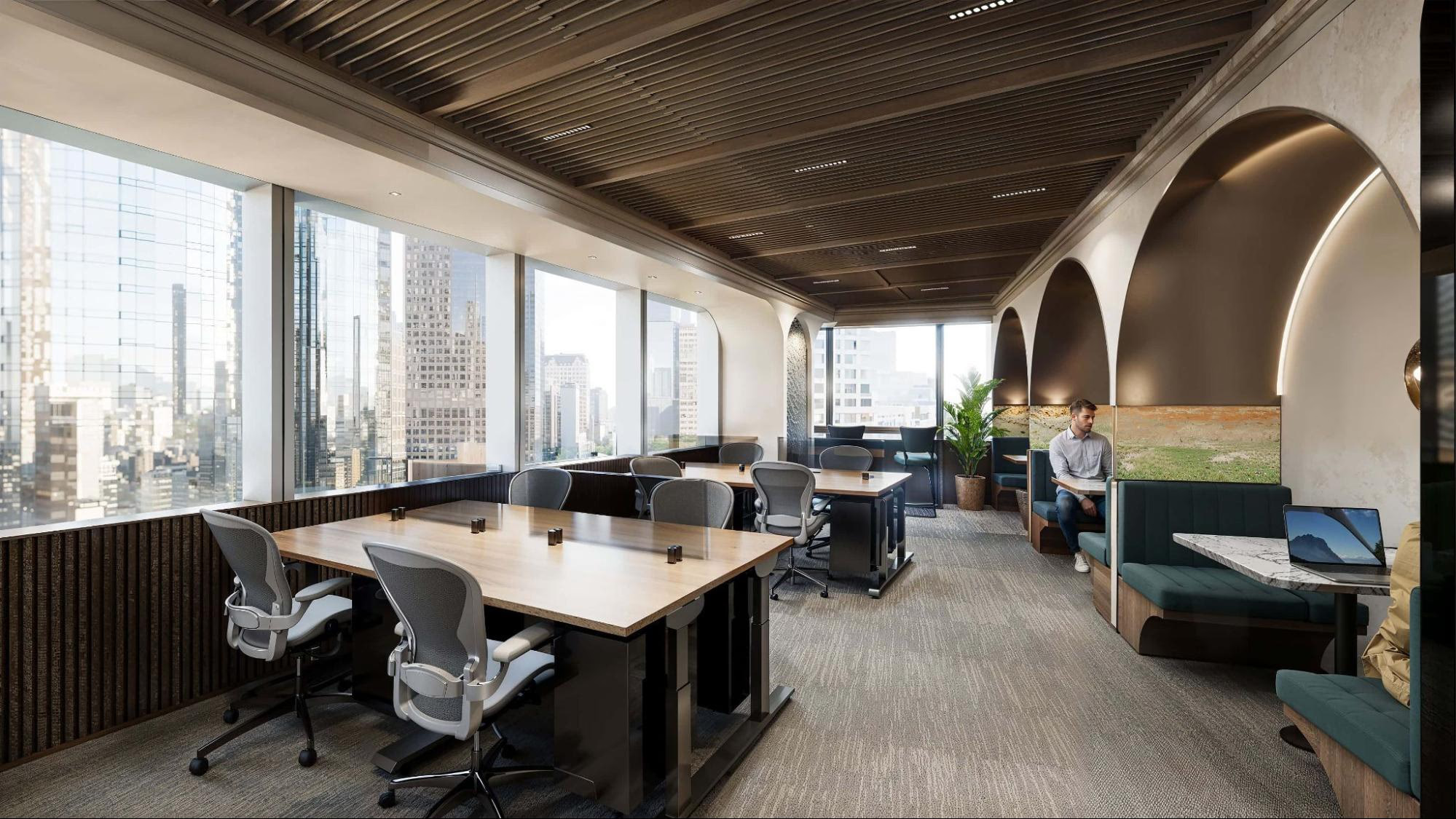The future of mental health care in Saudi Arabia is getting a new, exciting phase. As the prevalence of mental health conditions increases, with approximately 34% lifetime prevalence, with 86% of individuals not getting treatment, digital tools are needed urgently.

What is next is a preview of what is coming: immersive therapy sessions with artificial intelligence and virtual space, as a new AI-VR framework called TheraMind was developed at King Abdulaziz University. It is the first in Saudi Arabia, a combination of robotics precision, real-time biofeedback, and digital psychedelics. Together with the country's e-referral statistics which indicate 10,000+ psychiatry referrals over the last two years, it is evident: Saudi Arabia is developing an emerging, research-based care model that integrates mental health, technology, and immersive clinics.
The Mental Health Gap
There is a severe lack of parity between need and care in the Saudi Arabian mental health system. The latest national statistics indicate that approximately 34% of the population has had a mental disorder in their lifetime, and new cases of depression increased by 60%, or 1.42 million cases in 2011 to 2.28 million cases in 2021. As of 202021, the SMARC e-referral platform had over 10,000 psychiatric referrals, which were more in 2021 than in 2020, which highlights the increase in demand. Nonetheless, 86% of individuals with a mental disorder within the last year did not receive any services, usually because of the absence of specialists or stigma.

The majority of referrals were made to patients aged 18-44, and men were referred more than women, including in emergency situations. The regions were different in 2021; the Western and Northern regions had the highest referral rate per 10,000 people compared to Riyadh or the Eastern regions. Access was another issue that was brought out by the system: a great number of patients resided far away from clinics, or their needs were misinterpreted in conventional environments.
To seal these divides, the health system of Saudi Arabia is embracing digital solutions: telepsychiatry, mental-health apps, e-referral, and, most recently, immersive AI-VR. TheraMind is a radical new step in that direction, in which digital clinics are viewed as the future of mental care.

TheraMind
TheraMind, an original framework by a group of researchers directed by Dr. Daniah Hasan in early 2025 at King Abdulaziz University provides real-time treatment of mental health illness through a combination of artificial intelligence and virtual reality. TheraMind applies biofeedback sensors, such as heart-rate monitors, skin-conductance trackers and eye-movement detectors, to keep track of emotions. A VR scene is then modified by an AI engine: peaceful vistas, directed visuals and stress-release settings. The customized therapy bends in real-time and cross-pollinates AI, virtual reality, and immersive mental relief to patients.
This model was implemented on Labayh or the major digital mental health program in Saudi Arabia. Both university students and outpatients considered the VR settings to be more interesting than conventional teletherapy. In early feedback, there was improvement in emotional awareness, an exchange of anxiety state, and engagement. TheraMind also has shields of privacy, encrypted data storage and On-cloud execution, developing the assurance of patient safety.
TheraMind is not yet fully developed but the results are promising. Saudi now has a model to go to AI‑VR clinics, where therapists guide immersive experiences rather than speaking directly with patients, to provide care in large-scale, remote and secluded settings that reduce stigma.
E‑Referral Data
In the meantime, the platform of the Saudi Medical Appointments and Referrals Centre (SMARC), which was relaunched in 2019, now accumulates tens of thousands of e-referral records on mental health with the help of AI and predictive analytics. In 2020 and 2021, there were regular patterns of monthly psychiatric referrals with peaks in March and October, which could be related to the waves of the pandemic. It has processed 10,033 referrals all over the Kingdom, of which the majority were emergency or inpatient referrals due to the lack of specialized staff.
The rate of referral also depended on the area- Northern border and Al Baha were the highest (per 10,000), and Riyadh and Madinah were lower. Referrals made by men were 64 per cent and this is in line with the world trend, as men are taking a long time to seek care. Importantly, SMARC revealed the absence of a mental health service: emergency referrals were most prevalent, ward beds were requested most of the time, and the absence of specialists was mentioned in the majority of cases.
SMARC has a map. It can help a policymaker to identify underserved areas and age groups and monitor seasonal variations. It also establishes a digital basis for AI-VR delivery. In this case, these would open TheraMind clinics in areas labeled as underserved, aiding in the needs of patients who would not have easy access to therapists.
Digital Psychedelic Clinics
TheraMind is becoming a pioneer of AI‑VR clinics in Saudi Arabia. Even though the psychedelic therapy is yet to enter the playground, these spaces provide immersive environments similar to the guided psychedelic journeys, yet within the controlled setting. They are called digital psychedelic clinics and incorporate virtual reality, prepared soundtrack, nature-themed images, and interactive AI characters. The concept is to make use of altered-states drug-free therapy.
The model is emerging and has relationships with the global trends. Research indicates that VR can decrease anxiety, stress, and PTSD; help practice mindfulness and offer the same benefits as antidepressants in individuals with mild to moderate depression. VR is an open possibility among doctors in Saudi Arabia, and all other leading cities, Jeddah, and Mecca have a survey of 2021 stating 2021 saying that 64% of doctors are convinced that VR/AR has a use in the medical sphere and 41 % that they would utilize it frequently.
The Saudi telehealth market was US$906 million in 2023 and is forecasted to grow at a CAGR of 7.5% until 2029, and AI and VR are considered powerful facilitators. At the national level, the application of VR in healthcare earned $38.7 million in 2023, an amount that is expected to rise to $334 million by 2030 with a CAGR of 36.1%.
TheraMind clinics are thus well motivated. They can work in the Saudi cities or they may work elsewhere and be made accessible to patients who may be afraid of judgement, distance, and waiting long. Combining VR hardware, artificial intelligence (AI) facilitators, and trained therapists usually provides controlled healing that is immersive, customizable, and scalable.
Challenges and the Road Ahead
Nevertheless, the process is not smooth.
Important obstacles are data confidentiality and ethics. TheraMind describes effective protection measures--encrypted storage, data retention, access logs and compliance precautions. However, the trust of the patients has to be created thoroughly, taking into consideration the Saudi cultural background.
Clinical compliance is awaited too. The framework is promising, and it requires large-scale randomized trials and prolonged trials. What is the level of improvement as compared to conventional therapy? Does it have the same effectiveness on depression, PTSD, and social anxiety? These research works are being envisaged by Saudi researchers.
A regulatory pathway should also change. Ministries of healthcare must establish specifications of AI and VR clinics, with regard to licensure, certification of professional practice, reimbursement, and equipment standards. The fact that Saudi Arabia is leading the demands in passing telehealth and digital health laws gives it a solid foundation, yet a new framework is required to suit immersive therapy.
Another problem is workforce readiness. The therapists have mostly operated in the face-to-face context. TheraMind requires a network of therapists accustomed to VR arrangement, VR psychology, oral care of distant sessions and technical surveillance. There will be necessary new training programs and certifications.
The issues of cost and access remain unanswered. VR devices and AI in the clouds are not free. Clinics need to strike a balance between spending on equipment and funding or insurance coverage for the populace. Patients require a good internet connection and privacy of VR access in the countryside. Health center-university collaborations have the potential to offer subsidized access, although broadband and funding also count.
Nevertheless, a way forward is obvious and that is through tech‑based mental health. As Vision 2030 targets health digitalization and improved access, Saudi Arabia can find the necessary assistance to create VR clinics that will facilitate those in need, minimize the stigma, and enhance their lives.
Conclusion
TheraMind represents a paradigm change. King Abdulaziz University is contributing to this vision of the future of immersive therapy in Saudi Arabia, and sounds like a safe, scalable, and adaptable digital psychedelic clinic-cum-VR biofeedback loop via cloud platforms, weaving together AI and VR, biofeedback, and the cloud. In combination with e-referral data of SMARC, this system could reach the patients where the needs are highest and strategically.
The statistics are quite revealing: the vast majority of mental conditions are not treated, the rate of referrals is especially high in young adults, males remain untreated longer, and emergency referrals prevail. TheraMind finds the answer--a digital variant that can be run with classic therapy. Saudi Arabia should address policy, funding, clinical validation, and technology access challenges to make the shift a reality.
With the right approach, Saudi Arabia may become one of the world leaders in the field of digital mental health by the end of the decade: a country where a virtual reality driven by artificial intelligence clinic is accessible to all, the idea of self-guiding mental healing journey is implemented and available privately and personally. It is possible that the future of mental health care is a virtual healing space, and this can begin here in Saudi Arabia.


















